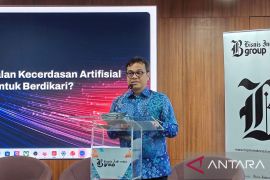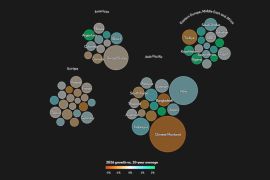"The capital expenditure allocation for infrastructure must be used effectively. The infrastructures that we build must have economic functions," Enny said here on Thursday.
Enny said the use of funds for development and maintenance of infrastructure facilities was still low while the amount of allocation in the state budget had continued to increase every year.
The absorption of capital expenditure for infrastructure development so far was not yet running effectively because the government tended to build and reconstruct physical facilities such as government buildings which had no economic functions.
"Infrastructure expenditures must be used mainly to eliminate bottle-necks and improve connectivity between cities and villages, food resilience and people`s prosperity," she said.
She said that the state budget should become a fiscal instrument which served as a stimulus for increasing economic growth so that employment could be enhanced.
Enny said that the 2012 draft state budget did not address the most crucial economic issues, namely unemployment, industrialization problems and the threat of food and energy crises.
The absence of clear strategies could be seen in the lack of seriousness in the way the government had formulated the state budget for the realization of its own programs such its pro-poor, pro-job, pro-growth and pro-environment programs.
She said that since 2006, the drawing up of the state budget had been facing the same problem, namely weak budgeting policy and technical realization.
Moreover, most of the central government`s expenditure or Rp215.72 trillion in the 2012 draft state budget worth Rp954.13 trillion was allocated for payment of the salaries of government employees.
"This explains that the state budget is still used to serve the bureaucracy, not for the prosperity of the people," she said.
(Uu.A014)
Editor: Ruslan Burhani
Copyright © ANTARA 2011











